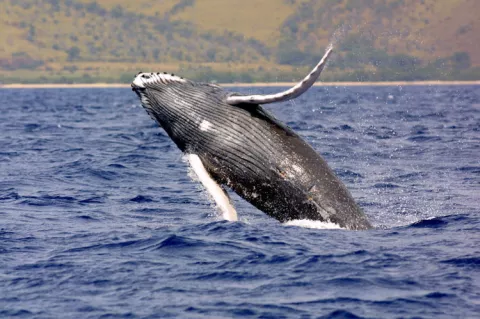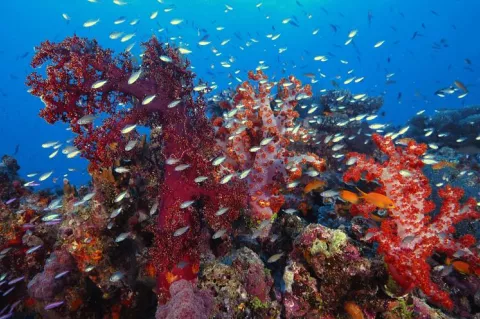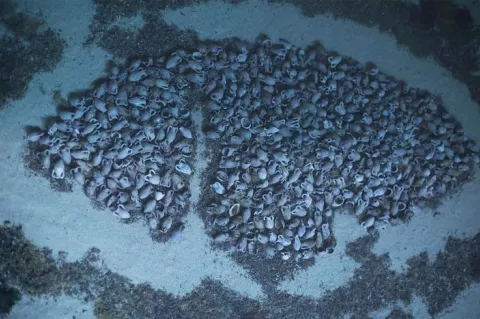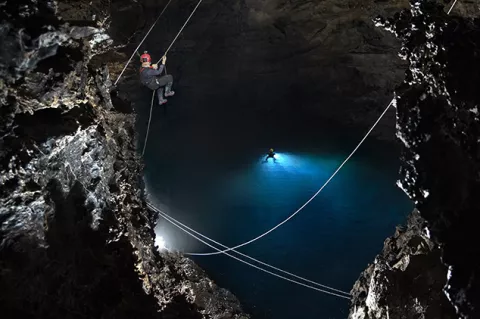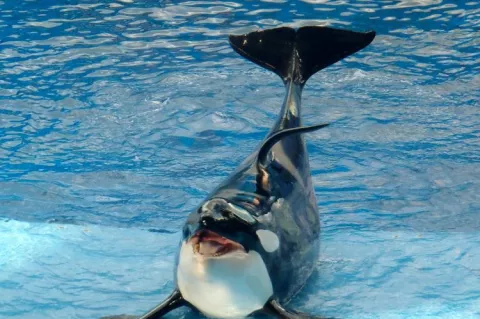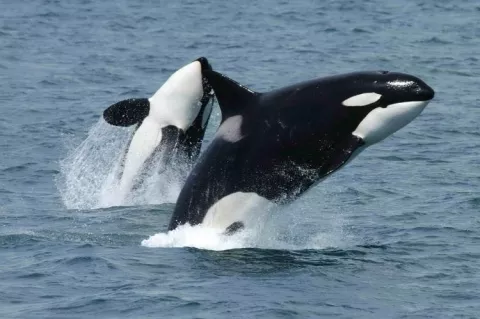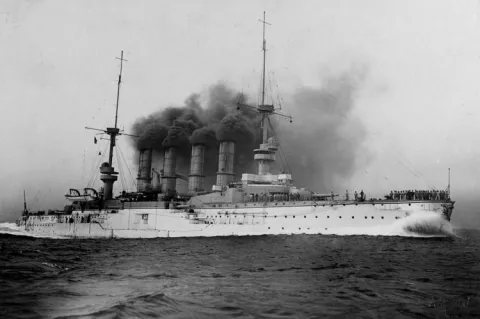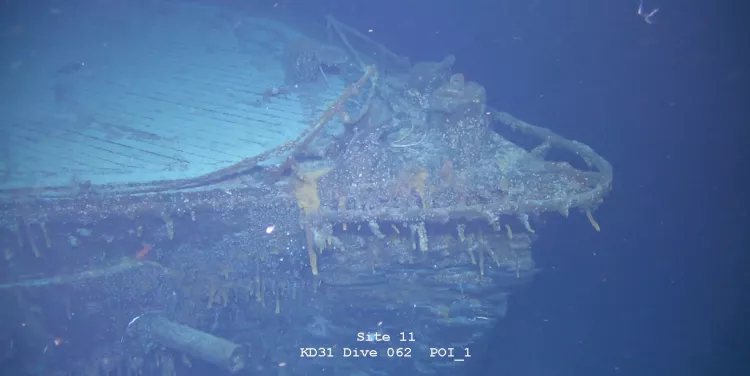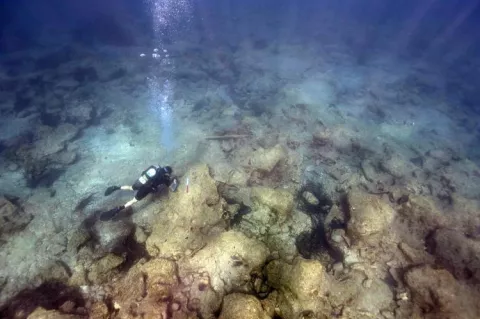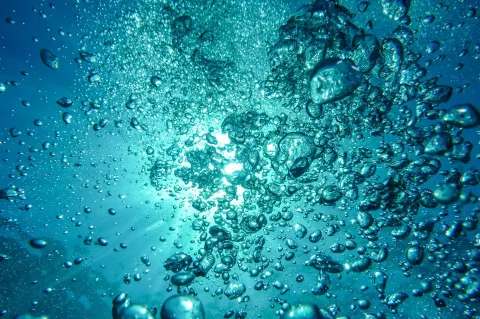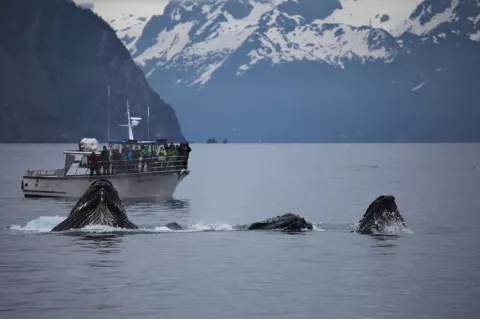Hungry humpbacks get sneaky on speedy fish
Lunge-feeding humpback whales plunge into dense schools of small fish to feed on them. However, these small fish tend to be pretty fast. So, just how do huge whales sneak up on such speedy prey if they are as huge and overbearing as a ... well, whale?
This question became the focus of a study at Stanford University. Its findings was subsequently published in the Proceedings of the National Academy of Sciences journal.

